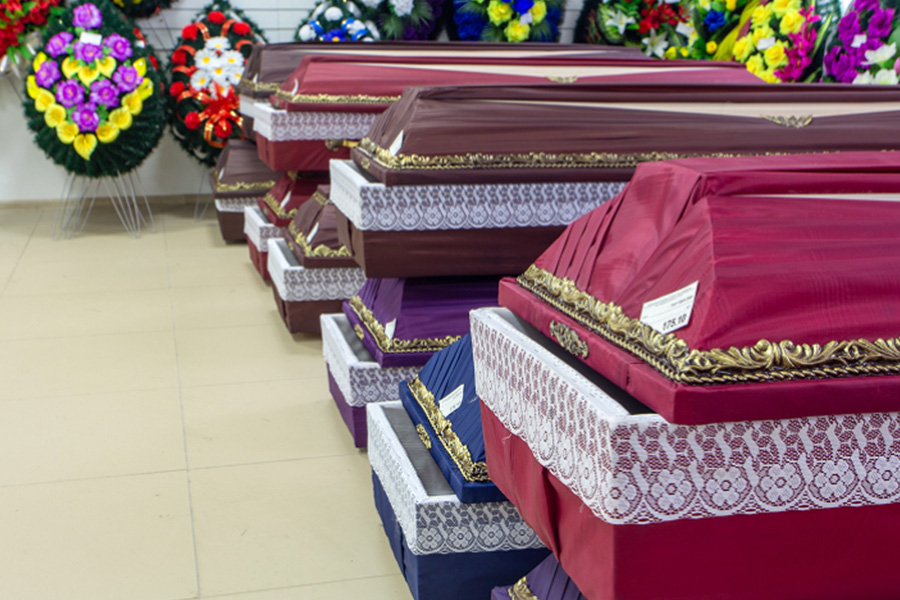
Losing a loved one is never easy, and during such a time, understanding cultural and religious customs becomes essential. In Singapore, the Muslim community observes specific burial traditions that emphasise respect, purity, and simplicity. For families arranging a Muslim casket in Singapore, it is important to be aware of the proper procedures and timelines involved. Likewise, understanding the availability of repatriation services in Singapore can help families manage funeral arrangements for loved ones who pass away overseas or wish to be buried in their homeland.
What Are Islamic Funeral Customs?
In Islam, burial customs are guided by faith and tradition. The funeral process follows the principles of simplicity, humility, and respect for the deceased. Once death is confirmed, the body must be prepared for burial as soon as possible, usually within 24 hours. This quick process reflects the Islamic belief in returning the body to the earth without unnecessary delay.
The body is first cleansed in a ritual known as ghusl, where it is washed and purified by family members or trained funeral staff of the same gender. It is then wrapped in a plain white shroud, known as a kafan, symbolising equality and purity before God. For families engaging a provider of a Muslim casket in Singapore, this process is conducted in accordance with Islamic laws, ensuring dignity and respect throughout the preparation.
The Role of the Muslim Casket in Singapore
While traditional Islamic burials do not typically involve elaborate caskets, Singapore’s funeral regulations require the use of a casket or coffin for hygiene and transport reasons. Providers offering Muslim caskets in Singapore ensure that these caskets adhere to religious guidelines, which are usually simple, unadorned, and free from decorations.
Funeral companies familiar with Muslim customs work closely with families to ensure that all arrangements comply with both religious requirements and local laws. They also assist with scheduling prayers, arranging for burial at Muslim cemeteries, and managing documentation. Choosing an experienced provider helps families navigate these practical and spiritual responsibilities with greater ease.
Key Steps in the Burial Process
After the body has been cleansed and shrouded, the Salat al-Janazah (funeral prayer) is performed, often at a mosque or cemetery. This prayer is a collective act of faith, where family and friends gather to seek forgiveness and mercy for the deceased. Once the prayer is completed, the burial takes place at a Muslim cemetery, with the body placed in the grave facing Mecca (Qibla).
The grave is filled with soil while attendees recite prayers, reflecting on life and the afterlife. Funeral staff managing a Muslim casket in Singapore ensure this process is conducted respectfully and efficiently. Families can rely on these professionals to handle the necessary logistics so they can focus on mourning and prayer.
Repatriation Services for Muslim Families
For families with loved ones who pass away abroad, repatriation services in Singapore provide crucial assistance in bringing the body home or arranging for burial in another country. These services handle all necessary permits, documentation, and coordination with embassies and airlines. Given the religious importance of timely burial, speed and efficiency are essential in managing the repatriation process.
Professional funeral providers ensure that Islamic practices are maintained even during international transfers. This includes preparing the body according to Muslim rites before transport. Families seeking reliable repatriation services in Singapore can work with experienced funeral partners such as Jasa Budi Muslim Casket Services, who understand the cultural sensitivities and logistical complexities involved in cross-border arrangements.
Supporting Families During Bereavement
Funeral service providers are crucial in supporting grieving families. They offer guidance through every step of the process, from selecting the Muslim casket in Singapore to arranging burial rites and ensuring religious compliance. For many, having professional assistance during this period helps ease emotional and administrative burdens.
Respectful service, transparent communication, and adherence to Islamic customs are key qualities to look for when choosing a funeral partner. With compassionate support, families can focus on remembrance and prayer, knowing their loved one’s final journey is handled with dignity.
Conclusion
Planning a Muslim funeral in Singapore requires careful attention to both religious customs and legal requirements. Knowing the processes surrounding a Muslim casket and available repatriation services in Singapore ensures that every step is handled respectfully and efficiently. With professional guidance, families can honour their loved ones according to Islamic traditions while finding comfort during a difficult time.
Contact Jasa Budi Muslim Casket Services for compassionate assistance with Muslim casket arrangements and repatriation services.







